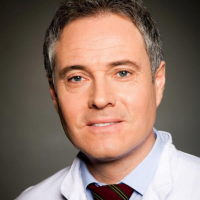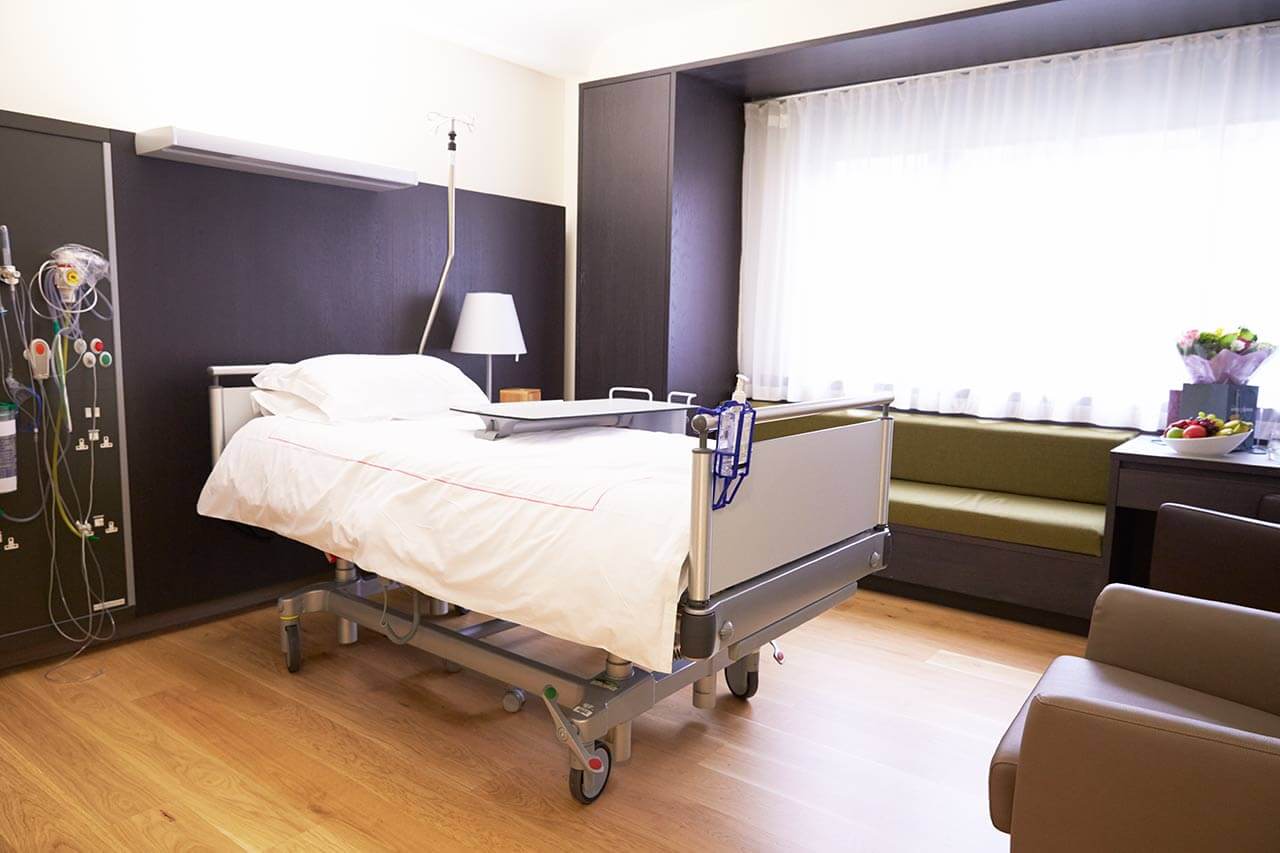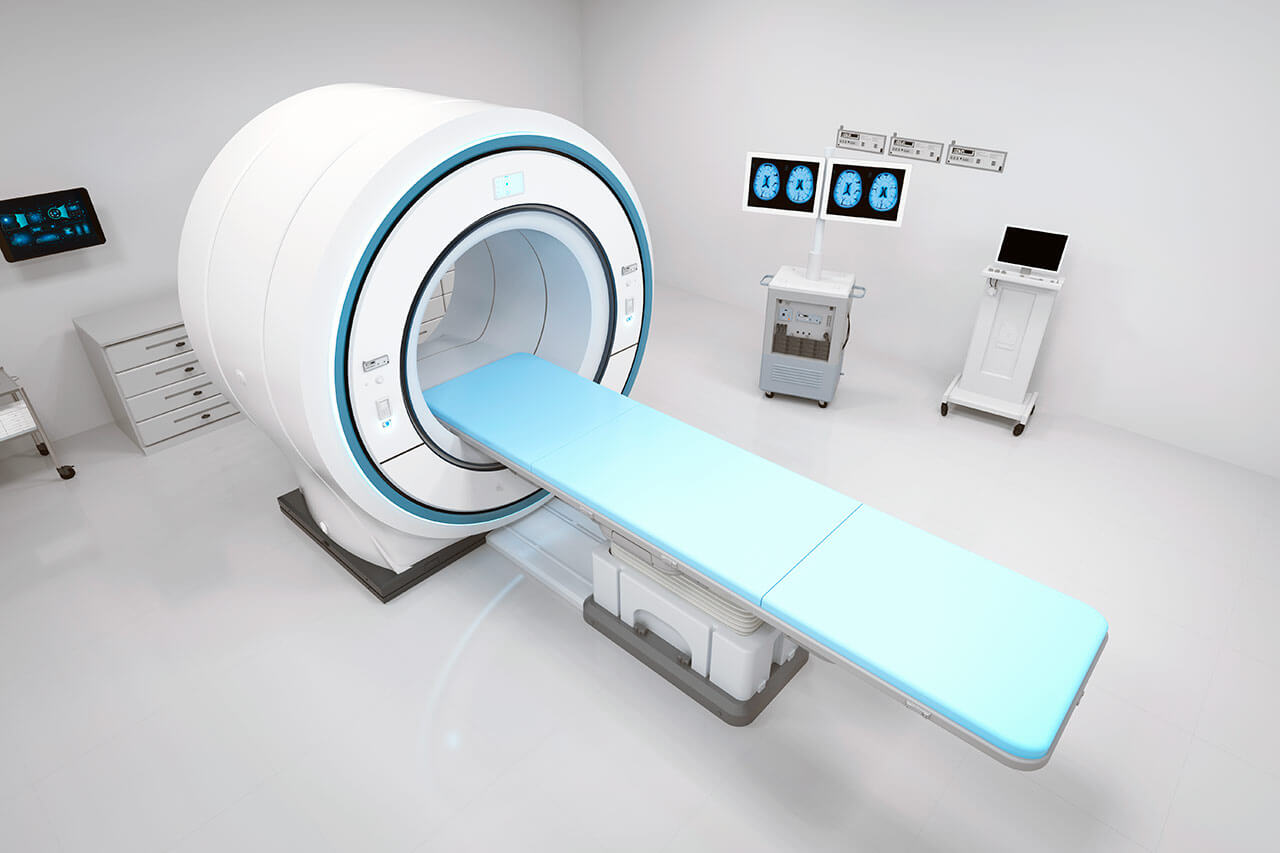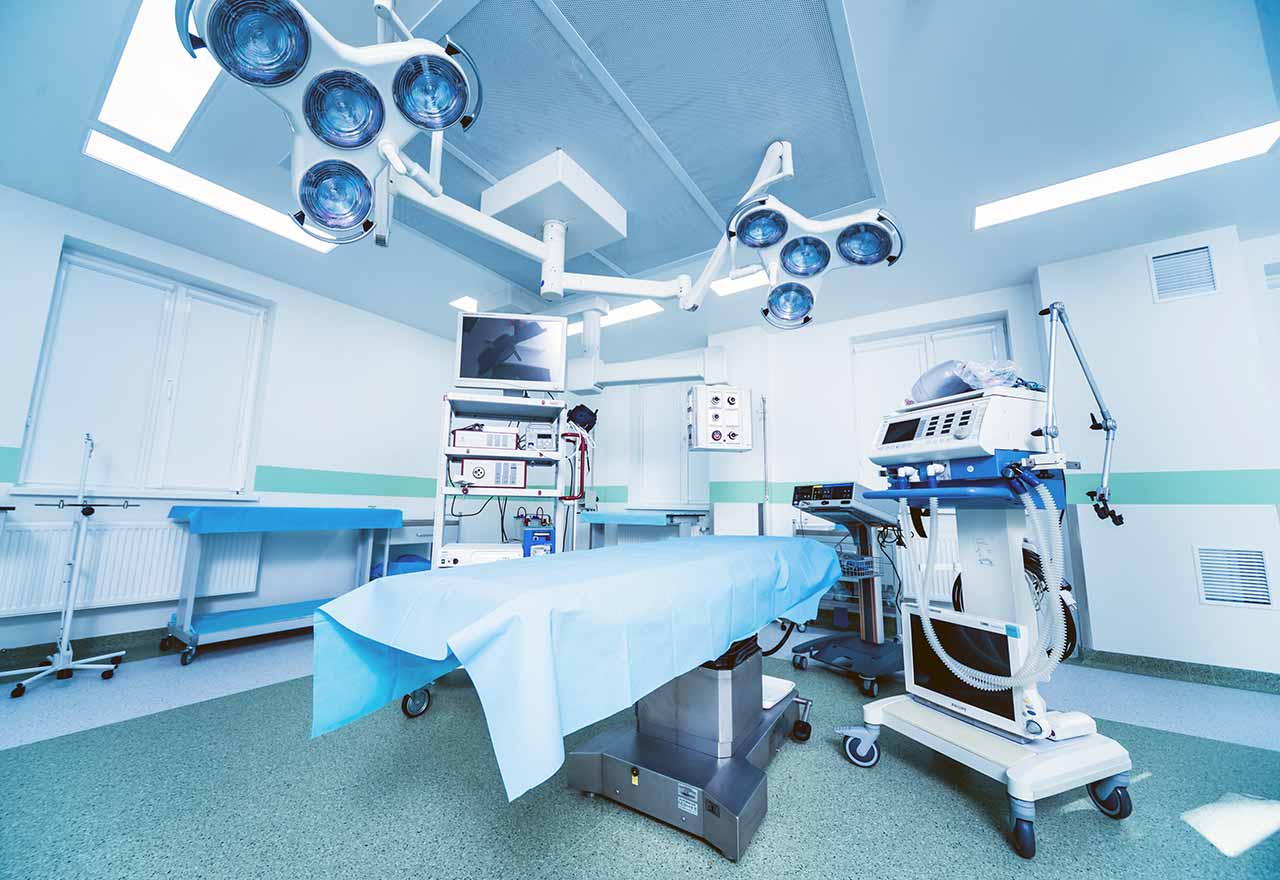
The program includes:
- Initial presentation in the clinic
- clinical history taking
- review of medical records
- physical examination
- laboratory tests:
- complete blood count
- biochemical analysis of blood
- thyroid function test (TSH-basal, fT3, fT4)
- mineral metabolism analysis (Na, K, Ca, Mg)
- lipid metabolism (HDL/LDL, cholesterol, triglycerides,
Lip(a), homocysteine) - iron content (ferritin, iron)
- blood coagulation analysis (aPTT, PT, INR)
- metabolic status (uric acid, total glucose, HbA1c)
- inflammatory parameters (CRP, ESR)
- cardiovascular disease risk markers
- vascular system assessment
- lung function test (Spirometry)
- resting and exercise ECG
- vessel elasticity measurement
- body fat and water examination
- color doppler echocardiography
- color doppler sonography of cerebral vessels
- measurement of arterial blood pressure electrocardiogram
- Holter monitoring (24h)
- preparation according to preoperative standard
- pacemaker implantation
- symptomatic treatment
- control examinations
- the cost of essential medicines and materials
- nursing services
- full hospital accommodation
- explanation of future recommendations
Required documents
- Medical records
- ECG (if available)
Service
You may also book:
 BookingHealth Price from:
BookingHealth Price from:
About the department
The Department of Pulmonology, Gastroenterology, Hepatology, Oncology, Cardiology and Internal Medicine at the Alfried Krupp Hospital in Essen-Steele provides the full range of services in the areas of its specialization. The department's team of doctors carries out comprehensive diagnostics and treatment of various diseases of the gastrointestinal tract, liver and respiratory system, including malignant ones. In the field of cardiology, doctors conduct all modern diagnostic tests, including cardiac catheterization, to assess the state of the cardiovascular system. The treatment of heart pathologies is based on pharmacotherapy. The area of responsibility of the department's specialists also includes the treatment of secondary forms of arterial hypertension, type 1 and 2 diabetes mellitus, and diabetic foot syndrome. The department has a specialized Weaning Center, which is certified in accordance with the standards of the German Society for Pulmonology and Respiratory Medicine (DGP). The highly professional team of doctors takes care of the health of patients, for whom the individual needs and wishes of the patient always come first. The department is headed by Dr. med. Peter Caspar Schulte.
The department is quite often visited by patients suffering from benign gastrointestinal diseases. It provides comprehensive diagnostics and effective conservative treatment of gastroesophageal reflux disease, gastritis and stomach ulcers, inflammatory bowel disease (Crohn's disease and ulcerative colitis), pancreatitis, hepatitis, diseases of the gallbladder, bile ducts and other pathologies. A comprehensive examination plays a decisive role in making an accurate diagnosis and developing optimal treatment tactics, therefore, the department has modern diagnostic rooms equipped with the most advanced devices for classical and duplex sonography, endosonography, computed tomography, magnetic resonance imaging and endoscopic diagnostic procedures. With the results of the preliminary examination obtained, the doctors begin treatment. The department's specialists provide pharmacotherapy and perform endoscopic procedures (for example, removal of colon polyps, elimination of stenoses, intragastric bleeding control). If the patient requires a surgical intervention, abdominal surgeons are involved in the therapeutic process.
Of particular interest is the treatment of gastrointestinal cancers: stomach, colorectal, pancreatic, liver cancers. Should cancer be confirmed, a treatment regimen is developed in interdisciplinary collaboration with oncologists, surgeons, radiation therapists and other doctors of related specialties. The department's gastroenterologists perform adjuvant and palliative chemotherapy with the use of chemotherapy agents such as 5-fluorouracil, oxaliplatin, irinotecan, gemcitabine, etoposide, docetaxel, cetuximab, tyrosine kinase inhibitors, and others.
An important place in the department's clinical practice is given to the diagnostics and treatment of lung, bronchial, pleural and mediastinal diseases. Diagnostic capabilities in this area include bronchoscopic examinations, endobronchial ultrasound (EBUS), pulmonary function testing, and bronchoscopy. These diagnostic tests allow the doctors to accurately assess the state of the thoracic organs, make the correct diagnosis and prescribe the most effective treatment. Whenever possible, preference is given to pharmacotherapy, but with absolute clinical indications, endoscopic therapeutic procedures are performed. These include bronchoscopy, thoracoscopy, bronchoalveolar lavage, stent implantation for obstructions and stenoses, argon plasma coagulation, removal of foreign bodies from the respiratory tract, etc. A chemotherapy regimen for the treatment of lung cancer is developed in collaboration with oncologists, thoracic surgeons, radiation therapists and other specialists.
The team of the department's cardiologists deals with the diagnostics and treatment of cardiovascular diseases. A classical examination includes echocardiography, including pharmacologic stress echocardiography, 24-hour electrocardiography, 24-hour blood pressure monitoring, ergometry and other methods. Coronary angiography, right and/or left heart catheterization are performed with the appropriate clinical indications. In most cases, the treatment of cardiac pathologies involves the use of the latest generation medications. The department also provides cardiac pacing to normalize the heart rate.
In the field of internal medicine, the department admits patients with secondary forms of arterial hypertension, type 1 and type 2 diabetes mellitus, diabetic foot syndrome and chronic pain syndromes. The patients are prescribed the necessary complex of diagnostic tests, based on the results of which further treatment tactics are planned.
The department's main clinical focuses include:
- Gastroenterology
- Diagnostics and treatment of benign gastrointestinal diseases
- Gastroesophageal reflux disease
- Gastritis
- Stomach ulcer
- Chronic inflammatory bowel disease (Crohn's disease and ulcerative colitis)
- Pancreatitis
- Diagnostics and treatment of benign gastrointestinal diseases
- Hepatology
- Diagnostics and treatment of liver diseases
- Cirrhosis
- Viral hepatitis
- Diagnostics and treatment of liver diseases
- Oncology
- Diagnostics and treatment of malignant gastrointestinal diseases: stomach, colorectal and pancreatic cancers
- Diagnostics and treatment of liver cancer
- Diagnostics and treatment of lung cancer
- Pulmonology
- Diagnostics and treatment of benign lung, bronchial, pleural and mediastinal diseases
- Cardiology
- Diagnostics and treatment of heart disease, including arrhythmias
- Internal medicine
- Diagnostics and treatment of secondary forms of arterial hypertension
- Diagnostics and treatment of type 1 and 2 diabetes mellitus
- Diagnostics and treatment of diabetic foot syndrome
- Other medical services
The department's therapeutic options include:
- Pharmacotherapy for gastroenterological, hepatological, pulmonological, oncological, and cardiac diseases
- Endoscopic procedures for gastrointestinal diseases
- Bouginage
- Endoscopic removal of benign gastrointestinal neoplasms
- Stent implantation
- Intragastric bleeding control
- Endoscopic and interventional procedures for respiratory diseases
- Bronchoscopy
- Thoracoscopy
- Talc pleurodesis
- Bronchoalveolar lavage
- Argon plasma coagulation
- Cryotherapy
- Stent implantation
- Endoscopic lung volume reduction
- Removal of foreign bodies
- Weaning from mechanical ventilation
- Cardiac pacing for the normalization of the abnormal heart rhythm
- Other treatment methods
Photo of the doctor: (c) Alfried Krupp Krankenhaus
About hospital
The Alfried Krupp Hospital in Essen-Steele is one of the best and most advanced medical facilities in the Ruhr area. The medical complex is an academic hospital of the University of Duisburg-Essen, thanks to which it extremely quickly implements innovative diagnostic and therapeutic methods into clinical practice. The hospital is supported by the Alfried Krupp von Bohlen und Halbach Foundation. The doors of the medical complex were first opened for patients back in 1870, and in 1980 the hospital building was completely renovated and upgraded with modern equipment. The hospital has seven specialized departments, each of which has a competent team of highly qualified doctors specializing in the treatment of a particular group of diseases. The patients of the hospital receive inpatient and outpatient medical care. The hospital has 320 beds for patient hospitalization.
The priority areas of work of the medical facility include general and abdominal surgery, plastic, aesthetic and reconstructive surgery, hand surgery, treatment of ENT diseases, musculoskeletal injuries and diseases, gastrointestinal and respiratory diseases, as well as treatment of urologic diseases. The doctors working at the hospital have excellent qualifications in laparoscopic, endoscopic and da Vinci robot-assisted surgery. Therefore, if surgical treatment is required, open traumatic operations are performed very rarely – only in especially complex clinical cases. The use of modern surgical techniques avoids extensive skin and soft tissue incisions, reduces surgical risks and the recovery period.
The medical team of the hospital consists of leading German doctors with profound clinical training and successful experience. Doctors admit patients with diseases of varying severity, including serious pathological conditions, and therefore the patients' credit of trust in specialists is very high. Particular attention is paid to an individual approach to each patient and his clinical case. In addition, doctors take care of the comfort of their patients during the therapeutic process – the patient with his needs and wishes is always a top priority.
Photo: (с) depositphotos
Accommodation in hospital
Patients rooms
The patients of the Alfried Krupp Hospital in Essen-Steele live in single comfortable rooms with all amenities. Each patient room has an ensuite bathroom with shower and toilet. The furnishing of the patient room includes an automatically adjustable bed, a bedside table, a table and chairs, a wardrobe, a telephone and a TV. The rooms also have Wi-Fi.
The hospital offers enhanced-comfort rooms. Unlike standard rooms, such patient rooms additionally include upholstered furniture, a safe, a mini fridge and an air conditioner. The bathroom has towels, a bathrobe, toiletries and a hairdryer. Fresh newspapers, seasonal fruits, coffee and tea are brought to the patient room every day upon the request.
Meals and Menus
The patients of the hospital are offered three meals a day. Breakfast and dinner are served buffet style, while for lunch patients are offered a choice of several set menus. Patients staying in the enhanced-comfort rooms are offered a special menu with a wide range of delicious European dishes.
If for some reason you do not eat all the foods, you will be offered an individual menu. Please inform the medical staff about your dietary preferences prior to the treatment.
Further details
Standard rooms include:
Religion
The services of representatives of religions are available upon request.
Accompanying person
During an inpatient program, an accompanying person can stay with you in the patient room or in a hotel of your choice.
Hotel
During an outpatient program, you can stay in a hotel of your choice. The managers will help you choose the most suitable options.




